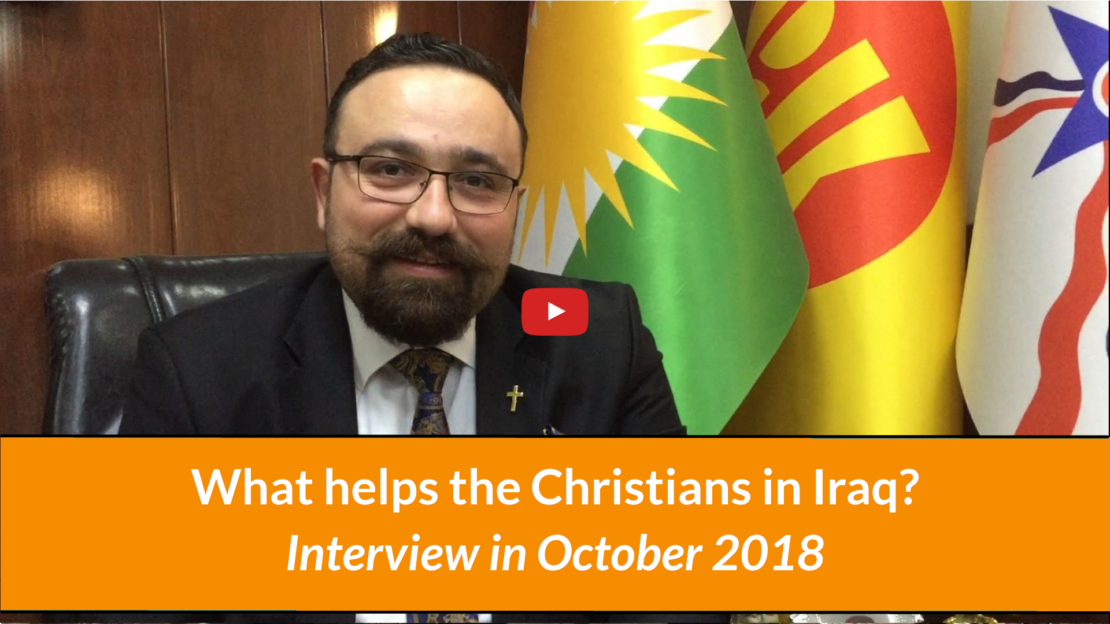Politician from Christian motivation
For a reconciled coexistence in Iraq
Interview with Ano Abdoka by David Mueller
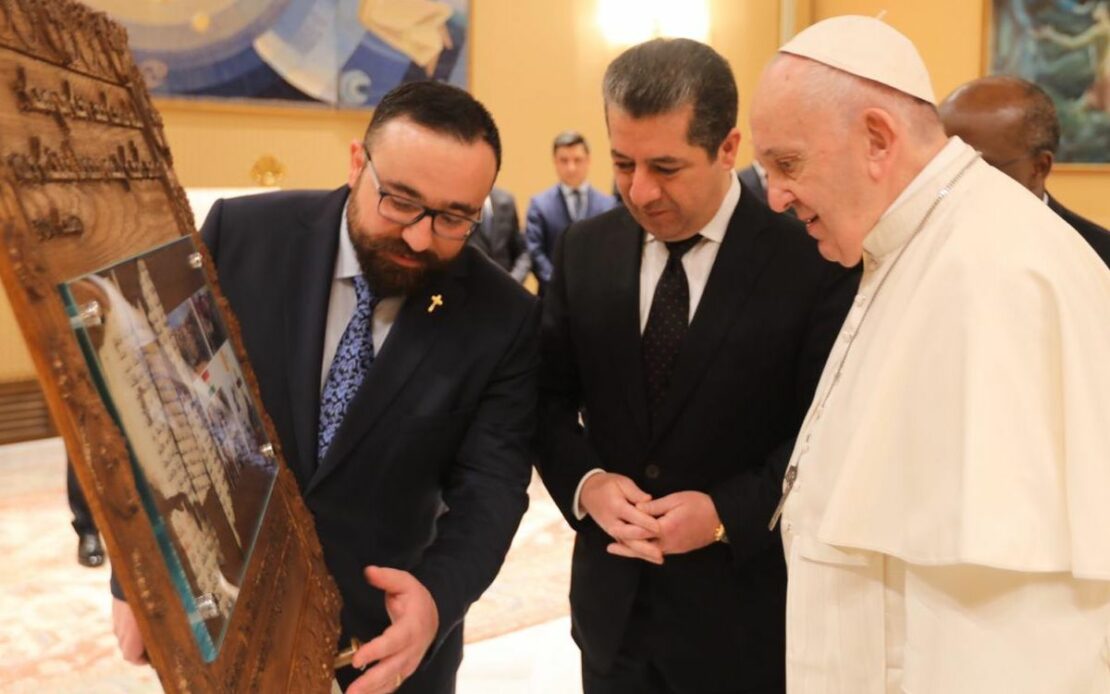
I met Ano Abdoka during one of our first trips to Iraq in 2018. Very quickly we started to build trust with each other. Today we are very close friends who are in regular contact. He is a Christian and has been a minister in the Kurdistan Regional Government since 2019. He was happy to answer my questions during my last visit in February 2022.
Ano, where did you grow up and what have you done for a living so far?
I come from a Chaldean Catholic family that considers itself descendants of the Chaldeans and Babylonians, that is, descendants of the Assyrian and Babylonian civilizations. In 1984, I was born in Ankawa, a Christian-majority suburb of Erbil.
According to the history books, there are five families from Ankawa who once moved to this city from the citadel of Erbil. My family is one of them. This citadel is one of the oldest continuously inhabited places in the world and was first settled about 7,000 years ago. I have a big family. More than 300 cousins have emigrated and live all over the world: in the United States, Canada, Australia, New Zealand, Germany, Sweden, Denmark, the United Kingdom, and other European countries. The family that remained in Ankawa is one of the big families there.
I also went to school there and then got my diploma in media studies in Erbil. Then at the University of Kurdistan Hewlêr I did a bachelor’s degree in political science and international relations, as well as one in international studies. I intensively studied the reasons for the emigration of Christians from Iraq. Afterwards, I was one of the candidates for the PhD program until I took office as Minister of Transport and Communications in the ninth cabinet of the Kurdistan Regional Government.
Professionally, I worked for the Kurdistan Journalists Syndicate during this period, most recently as head of the supervisory committee. I also worked for eleven years as a reporter, editor and head of the Christian programs department for Kurdistan TV.
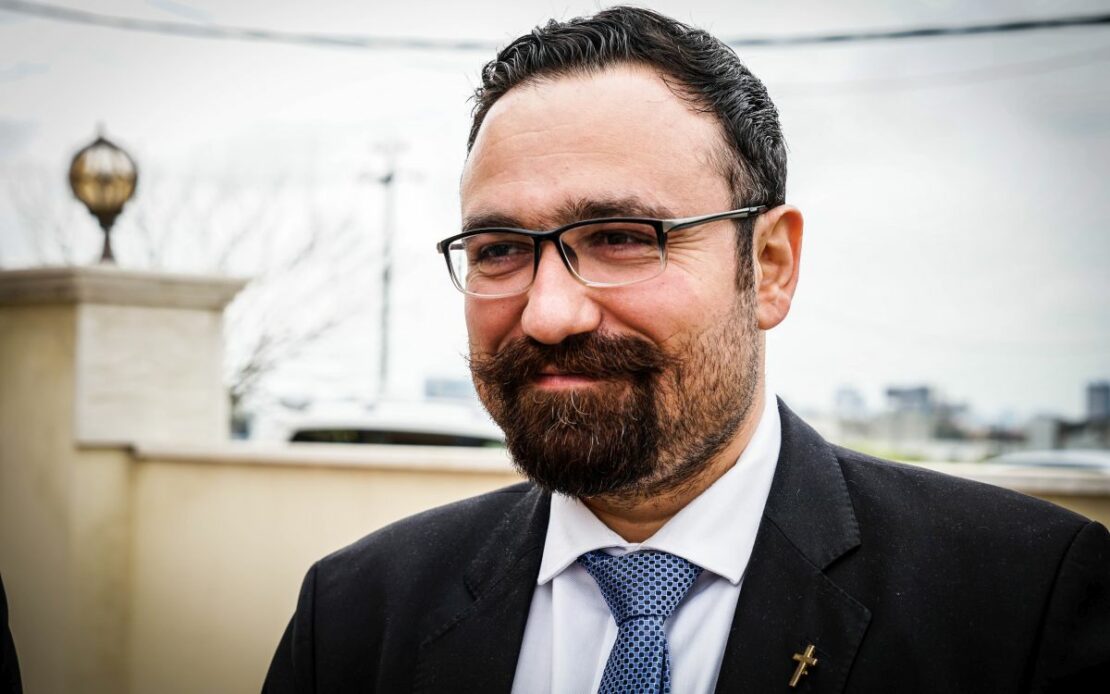
How did you get into politics?
My eldest uncle, a famous artist, became a member of the Peshmerga in the 1960s and joined the revolution against the then-dictatorship in Iraq. This group, once formed as an armed resistance movement to achieve Kurdish independence, now forms the armed forces of the Autonomous Region of Kurdistan in Iraq.
Our family suffered a lot because of my uncle. My father was captured, imprisoned and tortured by Iraqi Intelligence. So our family had a personal history with the politics here. When we were children, my father told us this story, especially that his brother was a peshmerga fighter. That was what pushed me into politics.
And so I started my public life in the church as a member of the “Christian Youth Brotherhood.” We learned in the church that we needed a public mandate to serve our Christian brothers and sisters here. So from the church we went into politics. But the main goal is still the same. We want to serve our Christian people in the Kurdistan Region and Iraq.
In my university days, I was active in the “Kurdistan Students Union.” After that, I was the first elected leader of the local committee of the Kurdistan Democratic Party in Ankawa and advocated for the concerns of Christians. Together with others, I founded the “Shlama Trend for Christian Affairs” and formed a parliamentary group in the Kurdistan Region with five other Christian parties. The National Unity Union is the largest Christian Chaldean-Assyrian-Syrian parliamentary group; it includes three out of five deputies.
What role does your Christian faith play in your life and profession?
The most significant! As Christians, we are called to work for the spread of love, peace, harmony, coexistence and tolerance. This is the education we have received from our Church and from our Lord Jesus Christ. This is how we as Christians can make a difference every time. We are here to witness for our faith. And for our great ancestors who received the faith from the apostles Peter and Thomas. Our church, the Church of the East, is one of the oldest churches in the world. Our ancestors preached Christianity in China and India and also in Africa. We had a bishop in the citadel of Erbil as early as 92 AD. It is our responsibility to witness to our faith and spread the teachings of Jesus Christ even in our work as politicians. We can always be politicians and at the same time live the ethics of Christianity in our daily work.
What keeps you motivated to keep going even under difficult circumstances?
The people of Iraq and the Kurdistan Region suffered a lot during the period of dictatorships. The genocide of Syrian Christians in 1915-17, called “Sayfo” in Aramaic, is burned in our collective memory. Between 100,000 and 250,000 Christians lost their lives. Or the Semile massacre, in which several thousand Assyrians were killed in 1933. Hundreds of thousands of people fell victim to the Anfal operation. These genocidal measures were used by Saddam Hussein between 1986 and 1989 against the Kurdish population and other minorities in northern Iraq. The Iraqi army’s poison gas attack on Halabja (1988) killed around 3,200 people.
Our great-grandfathers were also killed because they were Christians. The people of the Kurdistan Region were persecuted because they wanted their rights. They did not want to be Arabized.
So what drives me to work in these difficult times is that we want to build something. Personally, I want a better country, a more tolerant society, where my three daughters can grow up safely and with the prospect of a hopeful future.
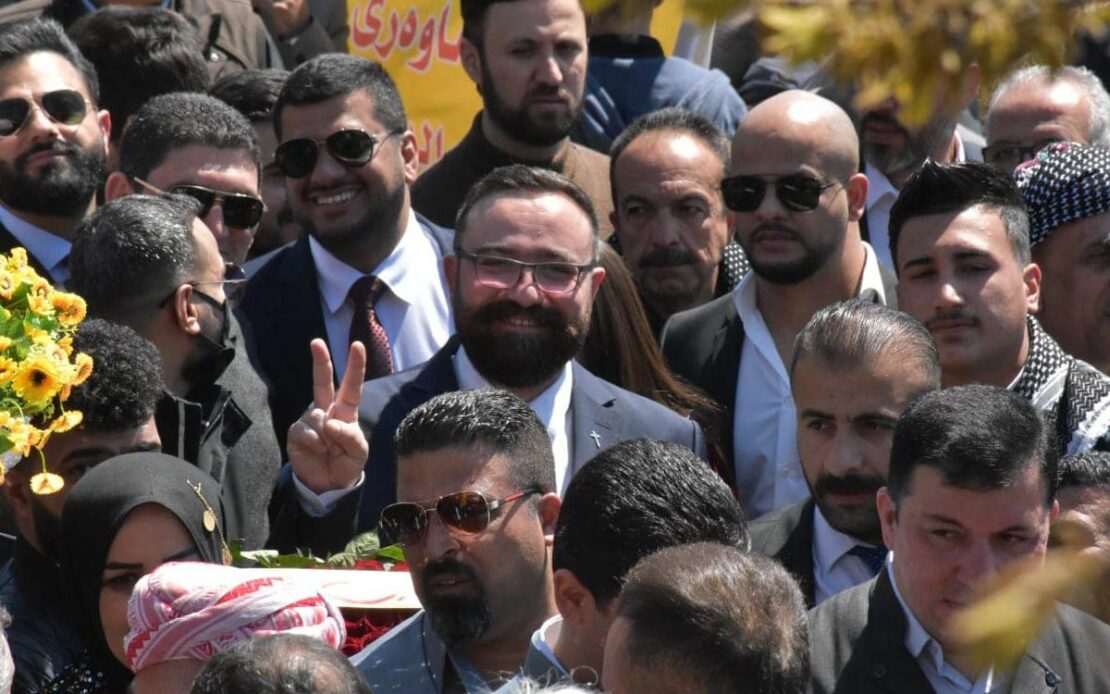
What are you happy about?
I am happy that there is religious and ethnic coexistence in the Kurdistan-Iraq region. It is not paradise here, but if you look at the Middle East, we have something unique here. This is a second chance for us Christians to strengthen our existence in Mesopotamia.
After the fall of Saddam Hussein’s regime, 111 churches were attacked and thousands of Christians were killed, including bishops, priests and nuns. This caused many to flee their homes. On the other hand, a large number of people from central and southern Iraq came to the northern Kurdistan Region of Iraq and found a new home here, with the result that some 75,000 Christians now live in Ankawa.
Recently, Kurdish Prime Minister Masrur Barzani granted the district of Ankawa the right of an autonomous district. This means that it can now have a mayor, a head of municipality and a city council, all of whom are Christians. It is thus a semi-autonomous district for Christians.
I am happy about what we have achieved here. But I am also working to create a better life for Christians and all other citizens in the Kurdistan Region of Iraq.
What is your wish for the Kurdistan Region and all of Iraq?
I wish for all of us to get along with each other. And I wish the politicians in Baghdad to understand that the mentality of dictatorship, the mentality of authoritarian regimes no longer works for this country. We have seen many dictatorships in the last 50 years.
We have witnessed the devastating wars with Iran, with Kuwait, against the Kurds and the Kurdish people, and against the Christians. We have gained nothing in the process. We need to strengthen our federal system. We must respect each other and work indiscriminately on the basis of the constitution alone. We must also be independent. We must not give neighboring countries an opportunity to exploit us, with the argument “We have the same religion” or “We have the same faith or belong to the same religious community.”
The Iraqi people and also the Kurdish people have a proud history. 7,000 years of civilization since the Sumerians, Akkadians, Chaldeans, Assyrians and the Medes. Then came the Islamic civilization in Iraq. It is a shame for us to be controlled by other powers outside our borders. I myself am very proud that I belong to this beautiful ancient civilization history. And I will not accept being oppressed or exploited by a foreign actor. I would be happy if the politicians in Baghdad understood that. I also wish the politicians in the Kurdistan Region that we all work together in a peaceful way to get our rights according to the constitution.
Further, I wish that my Christian people would not emigrate but stay in the lands of our ancestors. And even if they decide to do so, because leaving is a deeply personal decision, they should not sell their possessions. They should have good relations with their relatives here, so that perhaps in another phase of their lives they will think of returning to the Kurdistan Region and Iraq.
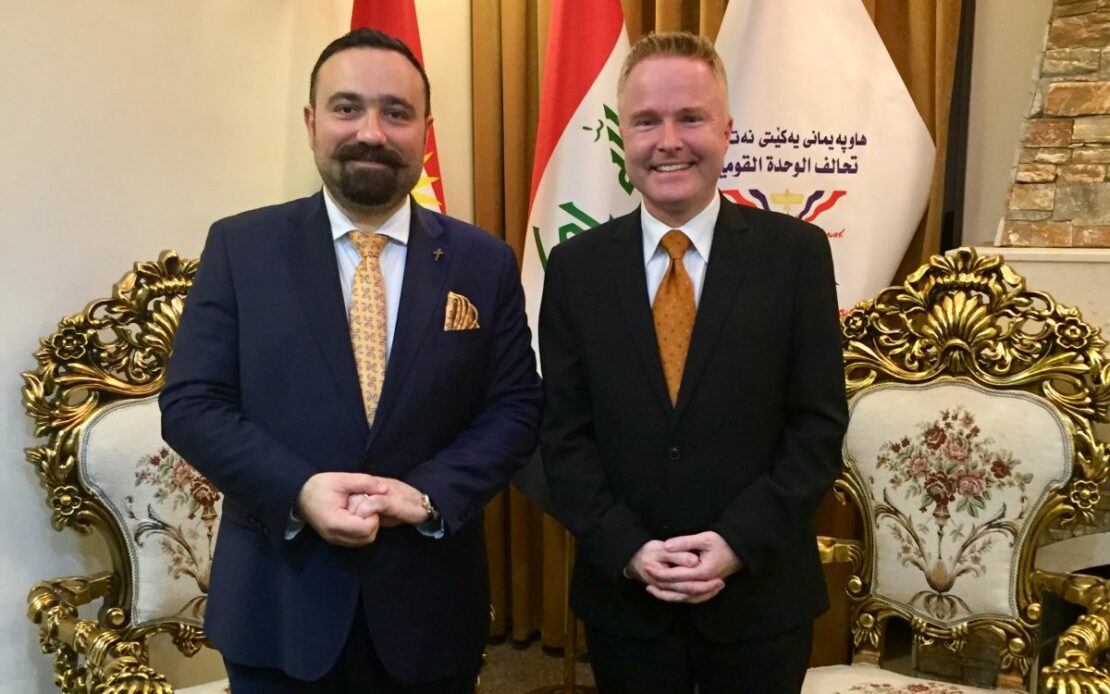
How can we in Germany and Europe help to fulfill your wish?
You can help us a lot. David, you come here often. Maybe you don’t know it, but possibly you have felt it. When people see you, they know they have friends in Germany who listen to them. They feel hope. “David with his bright hair comes to us from Germany to help”. And we have friends from whom we are separated by the sea, but they support us to stay as Christians and keep our faith and strength in our existence in the Kurdistan Region and Iraq.
You can support our villages in the Nineveh Plains to rebuild. You can support Ankawa, the largest Christian community and society and the largest city of Christians here, for example, in getting housing for young people, in giving them small loans so they can start small businesses.
And you can support students who want to get a master’s degree or a bachelor’s degree or maybe even a doctorate at their universities. Germany is a very powerful country. Therefore, if you guys decide to help us, I think that will make a great difference.
Thank you for your openness and all the best!
The questions were asked by David Mueller.
Another still highly relevant short interview (3:32 min.) with Ano Abdoka:
